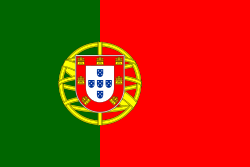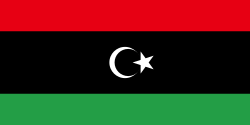Kuwaits fodboldlandshold
| Kælenavn(e) | Al-Azraq (De blå) | ||
|---|---|---|---|
| Forbund | Kuwaits fodboldforbund | ||
| Kontinentalt forbund | AFC (Asia) | ||
| Sub-confederation | WAFF (West Asia) | ||
| Landstræner | Vacant | ||
| Flest landskampe | Bader Al-Mutawa (156)[1] | ||
| Topscorer | Bashar Abdullah (75) | ||
| FIFA-kode | KUW | ||
| |||
| FIFA-rangering | |||
| Nuværende | 181 | ||
| Højeste | 24 (december 1998) | ||
| Laveste | 181 (september 2017) | ||
| Elo-rangering | |||
| Nuværende | 89 | ||
| Højeste | 26 (11. december 1998) | ||
| Laveste | 102 (februar 2008) | ||
| Første kamp | |||
(Marokko; 3. september 1961) | |||
| Største sejr | |||
(Kuwait City, Kuwait; 14. februar 2000) | |||
| Største nederlag | |||
(Marokko; 4. september 1961) (Leiria, Portugal; 19. november 2003) | |||
| Verdensmesterskabet | |||
| Deltagelser | 1 (Første gang i 1982) | ||
| Bedste resultat | 1. runde, 1982 | ||
| Asian Cup | |||
| Deltagelser | 10 (Første gang i 1972) | ||
| Bedste resultat | Mestre, 1980 | ||
Kuwaits fodboldlandshold er landsholdet i Kuwait og kontrolleres af Kuwaits fodboldforbund. Kuwait har deltage én gang ved Verdensmesterskabet i fodbold i 1982. Her fik de uafgjort med Tjekkoslovakiet, men tabte til England og Frankrig.
Referencer
| ||||||||||||||||||||||||||||||||||
| Spire Denne artikel om et fodboldlandshold er en spire som bør udbygges. Du er velkommen til at hjælpe Wikipedia ved at udvide den. |
Medier brugt på denne side
Football kit template socks
Straight Line Steady, intended for use in Template:Infobox Company. Use {{steady}} in wikipedia to make small line for steady profit. Self-made.
Flag of Portugal, created by Columbano Bordalo Pinheiro (1857–1929), officially adopted by Portuguese government in June 30th 1911 (in use since about November 1910). Color shades matching the RGB values officially reccomended here. (PMS values should be used for direct ink or textile; CMYK for 4-color offset printing on paper; this is an image for screen display, RGB should be used.)
Flag of Libya between 1951-69, and re-introduced in the interim Constitutional Declaration of 3 August 2011.
The flag of the Kingdom of Libya was described in article 7 of the constitution of 7th October 1951 and officially adopted on 24 December 1951. The relevant passage in the constitution reads as follows (English translation based on The Libyan Flag & The National Anthem, a booklet issued by the Ministry of Information and Guidance of the Kingdom of Libya (year unknown), cited after Jos Poels at FOTW, 27 January 1997)
- The national flag shall have the following dimensions: Its length shall be twice its breadth, it shall be divided into three parallel coloured stripes, the uppermost being red, the centre black and the lowest green, the black stripe shall be equal in area to the two other stripes and shall bear in its centre a white crescent, between the two extremities of which there shall be a five-pointed white star.
- The red shall be sign red, and the green permanent green. The Crescent shall be on the hoistward side of the star, and the centre of the circle of which the crescent forms a part shall be in the centre of the flag. The star shall be in the open end of the crescent and one point of the star shall point to the centre of the circle. The maximum width of the 270 crescent shall equal 1/6th of its outside diameter which is 1/4th of the width of the flag. The distance between the tips of the crescent shall equal that between the uppermost and lowermost point of the star measured along a perpendicular forming the hoistward sides of these two points. The perpendicular shall form a tangent to the outside circumference of the crescent at a point equidistant from the top and bottom of the flag.
The booklet cited by way of illustration of the symbolism of the flag adds: "In the words of a well known Arab poet 'Our deeds are the colour of white, our battles of black, our meadows of green and our swords of red.' [...] The crescent is symbolic of the beginning of the lunar month according to the moslem calendar. It brings back to our minds the story of Hijra (migration) of our prophet Mohammed from his home in order to spread Islam and teach the priciples of right and virtue. The Star represents our smiling hope, the beauty of aim and object and the light of our belief in God, in our country, its dignity and honour which illuminate our way and puts an end to darkness."
But according to Barraclough's Flags of The World (1965): "The black stripe and its charges were from the black flag which the king had adopted when he was proclaimed Amir of Cyrenaica in 1947; the red stripe represents Fezzen, and the green Tripolitania."
Article 3 of the Constitutional Declaration (3 August 2011) reads (unofficial translation from the Arabic):
- "The national flag shall have the following shape and dimensions:"
- "Its length shall be double its width, it shall be divided into three parallel coloured stripes, the uppermost being red, the centre black and the lowest green, the black stripe shall be equal in area to the two other stripes together and shall bear in its centre a white crescent, between the two extremities of which shall be a five-pointed white star. "
Flag of Egypt (1958-1972) and flag of Syria (1958-1961) in the United Arab Republic. It also became the official flag of Syria since 1980.
Forfatter/Opretter: Undeviginti, Licens: CC BY-SA 3.0
Uhlsport kit sleeve
Forfatter/Opretter: Undeviginti, Licens: CC BY-SA 3.0
Uhlsport kit sleeve
Det er let at give dette billede en kant
Forfatter/Opretter: Undeviginti, Licens: CC BY-SA 3.0
Uhlsport kit body



















